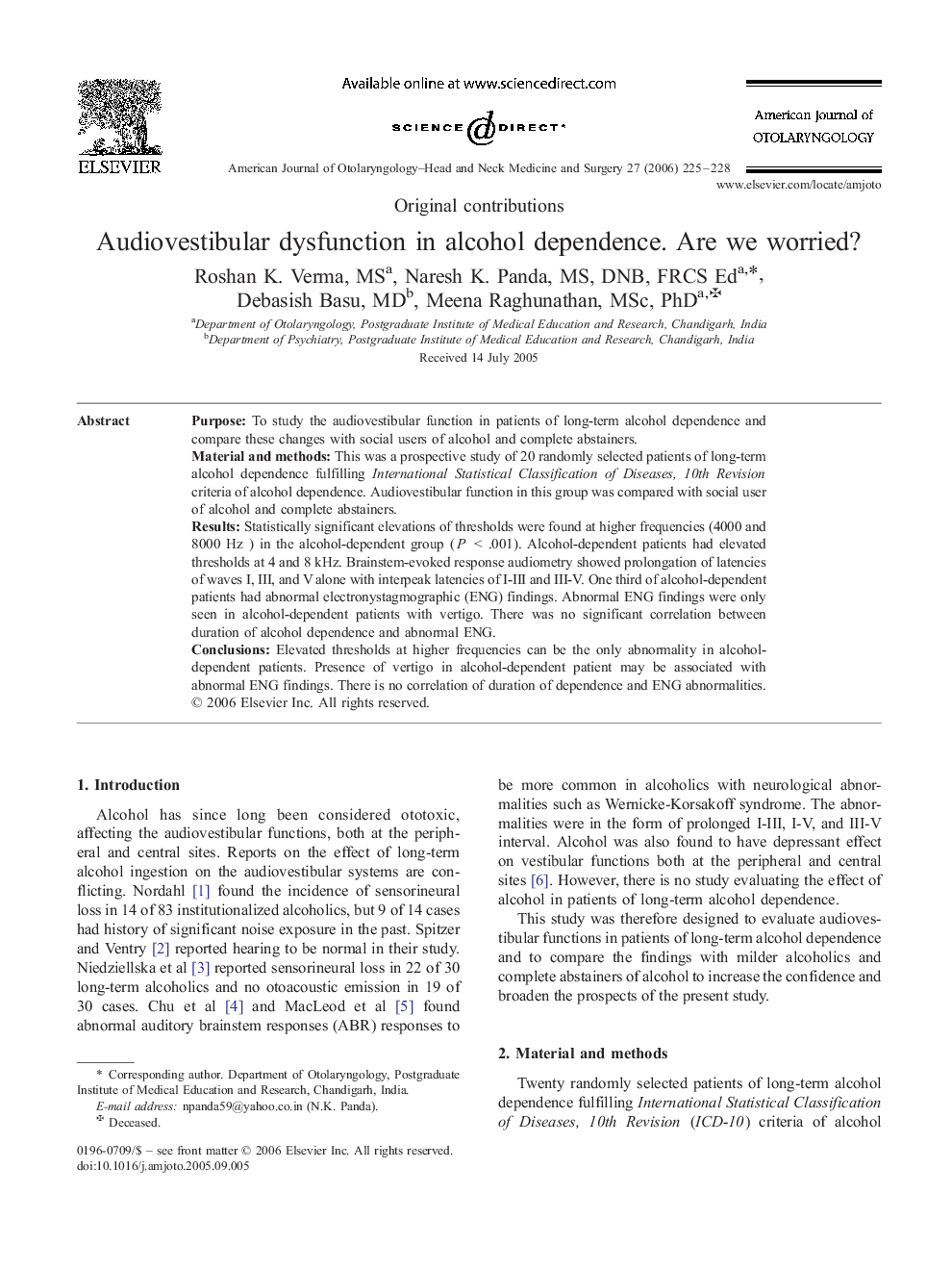| Article ID | Journal | Published Year | Pages | File Type |
|---|---|---|---|---|
| 4104537 | American Journal of Otolaryngology | 2006 | 4 Pages |
PurposeTo study the audiovestibular function in patients of long-term alcohol dependence and compare these changes with social users of alcohol and complete abstainers.Material and MethodsThis was a prospective study of 20 randomly selected patients of long-term alcohol dependence fulfilling International Statistical Classification of Diseases, 10th Revision criteria of alcohol dependence. Audiovestibular function in this group was compared with social user of alcohol and complete abstainers.ResultsStatistically significant elevations of thresholds were found at higher frequencies (4000 and 8000 Hz ) in the alcohol-dependent group (P < .001). Alcohol-dependent patients had elevated thresholds at 4 and 8 kHz. Brainstem-evoked response audiometry showed prolongation of latencies of waves I, III, and V alone with interpeak latencies of I-III and III-V. One third of alcohol-dependent patients had abnormal electronystagmographic (ENG) findings. Abnormal ENG findings were only seen in alcohol-dependent patients with vertigo. There was no significant correlation between duration of alcohol dependence and abnormal ENG.ConclusionsElevated thresholds at higher frequencies can be the only abnormality in alcohol-dependent patients. Presence of vertigo in alcohol-dependent patient may be associated with abnormal ENG findings. There is no correlation of duration of dependence and ENG abnormalities.
